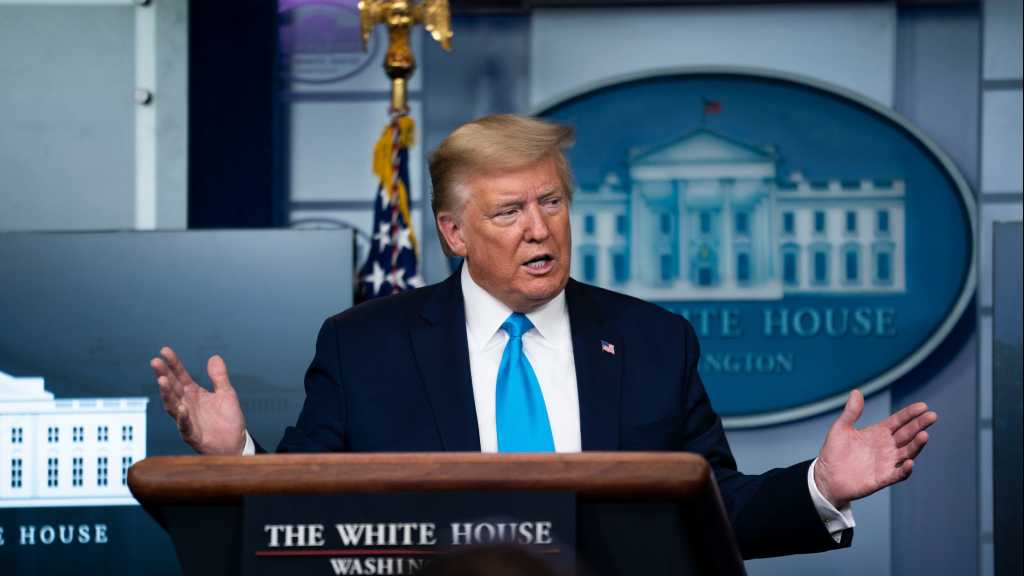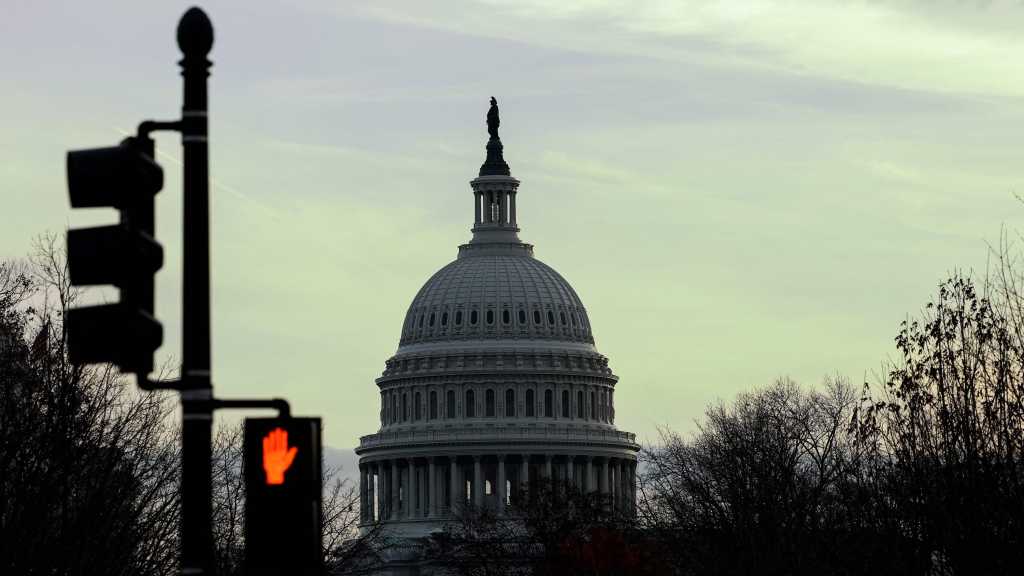Bush’s Foreign Policy Heritage Awaits Obama

Source: Al-Manar TV, 05-11-2008
Newly-elected U.S. president Barack Obama faces the daunting task of sorting out American policy in the Middle East and turning around deep-seated hostility in the region after it was plunged into turmoil under the Bush administration.
Crucial dates loom for America's controversial role in Iraq, its relations with archfoe Iran and its efforts to achieve an elusive peace accord between the Zionist entity and the Palestinians.
There are also fundamental long-term questions about US dependence on Middle Eastern oil and Washington's relations with the Arab states of the Gulf.
US President George W. Bush's push to spread democracy to the Middle East has run into the sand while his so-called "war on terror" to stamp out Al-Qaeda and the conflicts in Iraq and Afghanistan have only sown deep anti-American sentiment in the region.
"Is Obama going to save America and the world from the hostility and extremism caused by Bush's policies?" questioned Al-Dustur newspaper in Jordan, a close US ally.
"The mantra for the next administration has to be, 'Be careful what you wish for because you just might get it,'" said James Lindsay, who was a foreign policy aide to President Bill Clinton and is now with the University of Texas, Austin.
"The new president-elect is going to have a full foreign policy inbox and decisions to make with enormous consequences for American security," added Lindsay.
Foreign policy advisers say Obama, a Democrat who is the first black U.S. president, has an understanding of world affairs rooted in a childhood spent partly in Indonesia and a quest to learn about his father's Kenyan heritage.
On November 15, Bush will convene a summit in Washington to look at the global economic crisis. While Obama is unlikely to attend the meeting himself, it could give his economic team the chance to meet some of the visiting foreign officials on the sidelines of the conference.
The Obama administration will also inherit the Iraq and Afghan wars and an intensifying effort to pursue al Qaeda militants on Pakistan's border with Afghanistan.
Stopping Iran from acquiring a nuclear weapon - Tehran says its nuclear program is purely for civilian purposes - and holding North Korea to its promise to dismantle its nuclear weapons program are also pressing issues.
Bush's hardline approach has failed to deter Tehran from its nuclear drive. Some analysts say sanctions on Tehran have actually increased support within Iran for President Mahmoud Ahmadinejad, spurring the tirades against the "Great Satan" and Israel to distract attention from domestic economic woes.
"America will never stop its enmity with Iran and it appears that the US policy under the next presidency will not fundamentally change," said the Tehran newspaper Kayan.
Bush has never ruled out a military strike to stop Iran, while Obama has said he would engage in direct diplomacy at the same time pushing for tougher sanctions.
Obama, like his defeated Republican rival John McCain, has vowed a reinvigorated effort toward Middle East peace and promised staunch support for ‘Israel'.
Obama has pledged to end the Iraq war and bolster the U.S. troop presence in Afghanistan.
But the biggest challenge will be to reduce a near 145,000-strong force in Iraq without compromising on security gains after a deeply unpopular war that has claimed tens of thousands of Iraqi lives and killed more than 4,190 US personnel.
And if Washington and Baghdad fail to sign a military pact by December 31 and there is no new UN mandate, Obama will face a potentially hazardous situation with US occupation forces having no legal right to operate.
The ability to tackle deteriorating security in Afghanistan and pursue militants is "linked to the ability to make progress on political reconciliation in Iraq and the ability to draw down there," Obama foreign policy adviser Mark Lippert Lippert said.
McCain agreed on the need for more forces in Afghanistan, but opposed a timetable for withdrawal from Iraq, saying U.S. occupation troops should remain there as long as they are needed.
Obama's willingness to talk directly to U.S. adversaries such as Iran and Syria was another major point of disagreement during the campaign. Obama said the Bush administration's resistance to engaging foes has limited its diplomatic options, a position which the McCain camp called naive.
Obama opposed calls to oust Russia from the elite Group of Eight club of rich nations in response to Moscow's August war with Georgia, although he condemned the Russian invasion, triggered by Georgia's bid to reimpose control over breakaway South Ossetia.
Newly-elected U.S. president Barack Obama faces the daunting task of sorting out American policy in the Middle East and turning around deep-seated hostility in the region after it was plunged into turmoil under the Bush administration.
Crucial dates loom for America's controversial role in Iraq, its relations with archfoe Iran and its efforts to achieve an elusive peace accord between the Zionist entity and the Palestinians.
There are also fundamental long-term questions about US dependence on Middle Eastern oil and Washington's relations with the Arab states of the Gulf.
US President George W. Bush's push to spread democracy to the Middle East has run into the sand while his so-called "war on terror" to stamp out Al-Qaeda and the conflicts in Iraq and Afghanistan have only sown deep anti-American sentiment in the region.
"Is Obama going to save America and the world from the hostility and extremism caused by Bush's policies?" questioned Al-Dustur newspaper in Jordan, a close US ally.
"The mantra for the next administration has to be, 'Be careful what you wish for because you just might get it,'" said James Lindsay, who was a foreign policy aide to President Bill Clinton and is now with the University of Texas, Austin.
"The new president-elect is going to have a full foreign policy inbox and decisions to make with enormous consequences for American security," added Lindsay.
Foreign policy advisers say Obama, a Democrat who is the first black U.S. president, has an understanding of world affairs rooted in a childhood spent partly in Indonesia and a quest to learn about his father's Kenyan heritage.
On November 15, Bush will convene a summit in Washington to look at the global economic crisis. While Obama is unlikely to attend the meeting himself, it could give his economic team the chance to meet some of the visiting foreign officials on the sidelines of the conference.
The Obama administration will also inherit the Iraq and Afghan wars and an intensifying effort to pursue al Qaeda militants on Pakistan's border with Afghanistan.
Stopping Iran from acquiring a nuclear weapon - Tehran says its nuclear program is purely for civilian purposes - and holding North Korea to its promise to dismantle its nuclear weapons program are also pressing issues.
Bush's hardline approach has failed to deter Tehran from its nuclear drive. Some analysts say sanctions on Tehran have actually increased support within Iran for President Mahmoud Ahmadinejad, spurring the tirades against the "Great Satan" and Israel to distract attention from domestic economic woes.
"America will never stop its enmity with Iran and it appears that the US policy under the next presidency will not fundamentally change," said the Tehran newspaper Kayan.
Bush has never ruled out a military strike to stop Iran, while Obama has said he would engage in direct diplomacy at the same time pushing for tougher sanctions.
Obama, like his defeated Republican rival John McCain, has vowed a reinvigorated effort toward Middle East peace and promised staunch support for ‘Israel'.
Obama has pledged to end the Iraq war and bolster the U.S. troop presence in Afghanistan.
But the biggest challenge will be to reduce a near 145,000-strong force in Iraq without compromising on security gains after a deeply unpopular war that has claimed tens of thousands of Iraqi lives and killed more than 4,190 US personnel.
And if Washington and Baghdad fail to sign a military pact by December 31 and there is no new UN mandate, Obama will face a potentially hazardous situation with US occupation forces having no legal right to operate.
The ability to tackle deteriorating security in Afghanistan and pursue militants is "linked to the ability to make progress on political reconciliation in Iraq and the ability to draw down there," Obama foreign policy adviser Mark Lippert Lippert said.
McCain agreed on the need for more forces in Afghanistan, but opposed a timetable for withdrawal from Iraq, saying U.S. occupation troops should remain there as long as they are needed.
Obama's willingness to talk directly to U.S. adversaries such as Iran and Syria was another major point of disagreement during the campaign. Obama said the Bush administration's resistance to engaging foes has limited its diplomatic options, a position which the McCain camp called naive.
Obama opposed calls to oust Russia from the elite Group of Eight club of rich nations in response to Moscow's August war with Georgia, although he condemned the Russian invasion, triggered by Georgia's bid to reimpose control over breakaway South Ossetia.
One foreign policy priority Obama is likely to concentrate on is repairing ties with traditional allies, including many European countries that were strained under the Bush administration.
With the world's most powerful economy on the brink of recession, Obama has said one of his long-term repairs would be a renewable energy drive to break America's addiction to oil from the Middle East and other hotspots.
While this aim could hit the revenues of the oil-rich Gulf States, the US administration will need to keep the region's sovereign funds sweet so they still see America as a good place to invest their vast petrodollar wealth.




